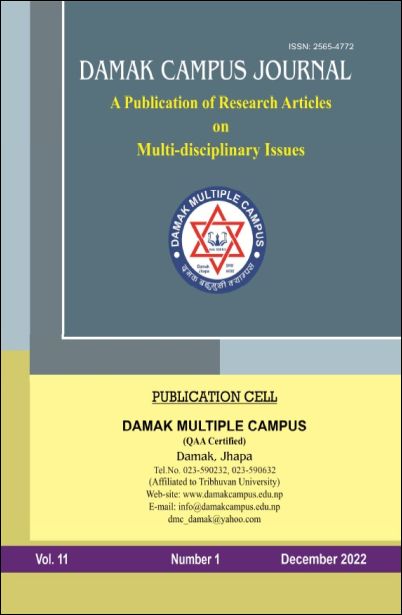Obtrusive Plagiarism and Data Falsification in Biological Sciences: Trends and Remedies
DOI:
https://doi.org/10.3126/dcj.v11i1.63481Keywords:
plagiarism, falsification, fabrication, predatory, publicationAbstract
Scientific misconduct includes plagiarism, falsification and fabrication. The intentional presentation of other’s work as own work without any authority is referred as plagiarism. Plagiarism also contains other’s images, structure and designed elements. It affects both published and unpublished materials obtained through evaluation of dissertations, peer review process or grant proposals. Fabrication is another research misconduct in which some fake activities are committed such as making up data, results and reporting them. If there is no any experimentation, it is also called fabrication. The Study shows that 60% of articles published in predatory journals are not found to be cited over the five-year period from the date of publication. Clear ethical standards should be made for assuring the researchers whether their work break certain codes or not. The investigation of organizations must be transparent, fair and prompt into research irregularities.




